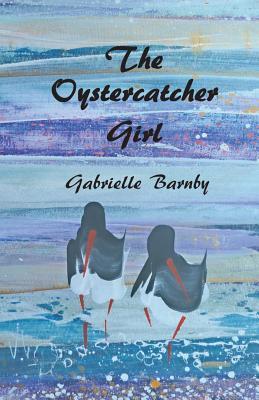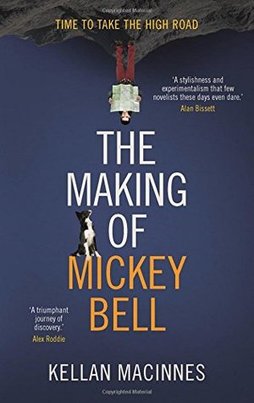If you visit Orkney, you’re likely to come away with at least one new word in your vocabulary. Peedie, Orcadian for wee, which is Scottish for little, crops up frequently in Gabrielle Barnby’s debut novel set amidst the spectacular scenery of those islands off the north coast of Scotland. But the story of secrets and betrayal among three women who have grown up together, although squeezed into a little over 200 pages, is not peedie at all.
It begins in the mediaeval splendour of St Magnus Cathedral, at the funeral of Tessa’s husband, Robbie. The narrator, Christine, supported by her chatterbox sister, Lindsay, feels unable to show the full extent of her grief. It’s for Lindsay’s sake that Christine has returned from the South to take up a job at St Olaf’s school. Tessa, and her young daughter, Jenna, unable or unwilling to stay on in the flat above the shop run by her in-laws, nor to return to the farm on which she grew up, moves into Christine’s cramped cottage, and goes back to her hairdressing job.
Lindsay, it turns out, lives with bipolar disorder and, with her chaotic exuberance vividly portrayed through pressure of speech, I found her the most interesting character. But, although she shapes the plot, The Oystercatcher Girl is a mystery based on the love triangle between Robbie, Tessa and Christine.
I loved the descriptions of landscape and the evocation of smalltown life with the entangled bonds of love and friendship and the desire for privacy in a place where everyone knows everyone else’s business, although there are still shameful secrets that go unmentioned. There are hints of parallels between Christine’s mother’s work as an archaeologist researching the islands’ Neolithic ruins and the needs of the younger generation to excavate the past. Along with the language, the novel makes use of the setting’s traditions (although personally I could have done without the reminder of the Blackenings, a ghastly pre-wedding ritual in which both bride and groom are, separately, stripped and doused in black treacle and paraded through town).
Gabrielle Barnby’s debut novel is published by Thunderpoint, to whom thanks for my review copy.
Any serious hill walker from Britain or beyond will know of the Monros, the 282 Scottish mountains above 3000 feet. In the forty odd years between my first and last, I’ve “bagged” only about a dozen of them; in the five years he’s been diagnosed with HIV Mickey Bell has conquered all but five. Great for his physical and mental health but, since a canny support worker helped him claim the higher rate mobility component of Disability Living Allowance intended “for people unable, or virtually unable, to walk more than fifty metres without severe discomfort or the risk of endangering their life” (p183), not something to boast about to an unstable new lover. When Mickey seeks to sever ties with young Jonnie, the latter reports him to the Department of Social Security. With the Scottish independence referendum on the horizon, and Whitehall shamefaced by people in wheelchairs demonstrating against the bedroom tax, the minister overseeing the government’s welfare reforms is determined Mickey’s fraud will be exposed and punished.
Related in both third and first person, primarily from Mickey’s point of view but with guest appearances from, among others, the Prime Minister, the guidebook to the Monros and Mickey’s dog, Tyke, the novel’s time shifts seemed a little confusing initially; on reflection, this was mostly due to the blurb taking its lead from the event a quarter of the way into the book. I’d be doing the author a disservice to say it’s the best novel I’ve ever read about mountains, disability benefits and living with HIV; if I’ve read another fictionalisation of such an apparently unlikely combination, it’s long forgotten. But The Making of Mickey Bell is much more than that: a lively, quirky homage to the rugged Scottish countryside, a heartwarming and sometimes humorous celebration of the human spirit against a backdrop of recent British politics.
Conceived before the EU referendum pushed the gap even wider between the Scottish and UK parliaments (with Scotland voting overwhelmingly in favour of remaining in Europe), I’m hoping Kellan Macinnes is contemplating a follow up. Thanks to Sandstone Press for my review copy.
And while we’re on the subject of Monros, follow the link to one of my own short stories featuring one of the 282: “Getting to Grips with Liathach” (p57).























 RSS Feed
RSS Feed





















